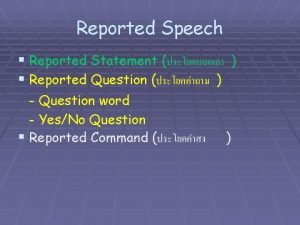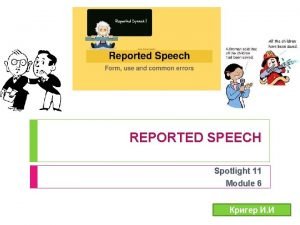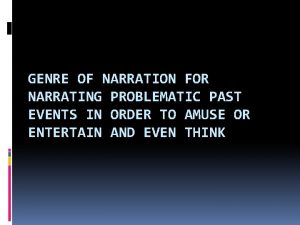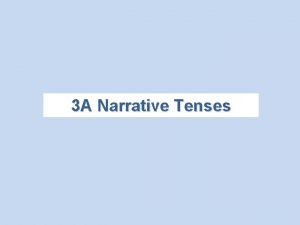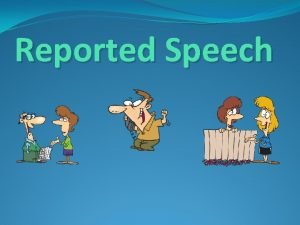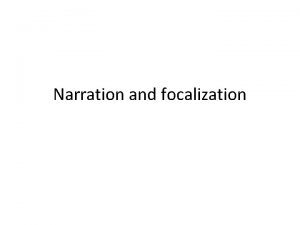Glimpses of the past Module 4 Narration Reported









- Slides: 9

Glimpses of the past Module 4

Narration/ Reported Speech There are two ways of reporting what a person has said : direct and indirect. Direct Speech • In direct speech, we repeat the original speaker’s exact words, e. g. He said, “I have lost my books”. Remarks thus repeated are placed between inverted commas and a comma is placed immediately before the remark. Direct speech is found in conversations in books, in plays and in quotations. Indirect Speech • In indirect speech, we give the exact meaning of a remark or a speech, without necessarily using the speaker’s exact words. e. g. He said (that) he had lost his books. There is no comma after say in indirect speech. That can usually be omitted after say and tell + object.

Parts of Narration Sentence A narration sentence has two parts. These are , • Reporting Verb • Reported Speech 1. Reported Speech The part of the narration sentence which is in the inverted called reported speech. 2. Reporting Verb The part which is outside the inverted commas is called reporting verb. e. g. She says to him, “I am going to school”. Reporting Verb Reporting Speech



Study these examples. First farmer : “Why are your men taking away the entire crop? ” Second farmer : “Your men have taken away everything. ” Officer : “You are still in arrears. If you don’t pay tax next week, I’ll send you to jail. ” • The first farmer asked the officer why his men were taking away the entire crop. • The second farmer said that their men had taken away everything. • The officer replied that they were still in arrears and warned them that if they did not pay tax the following week, he (the officer) would send them (the farmers) to jail.

Change the following sentences into indirect speech. (i). First man : “We must educate our brothers. ” Second man : “And try to improve their material conditions. ” Third man : “For that we must convey our grievances to the British Parliament. ” The first man said that___________ The second man added that ________ The third man suggested that ________

(ii). First soldier : “The white soldier gets huge pay, mansions and servants. ” Second soldier : “We get a pittance and slow promotions. ” Third soldier : “Who are the British to abolish our customs? ” The first soldier said that _________ The second soldier remarked that ______ The third soldier asked __________

End of Module 4



